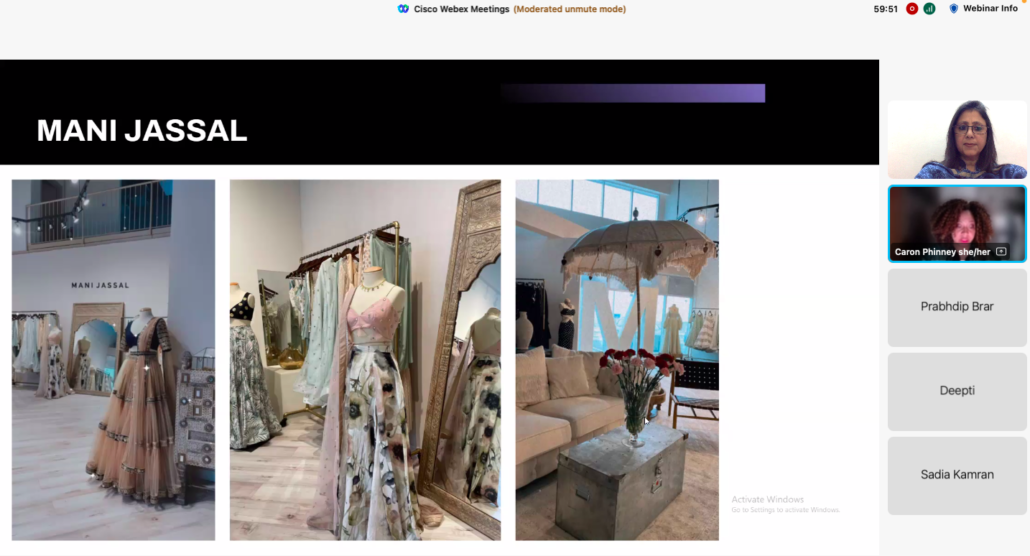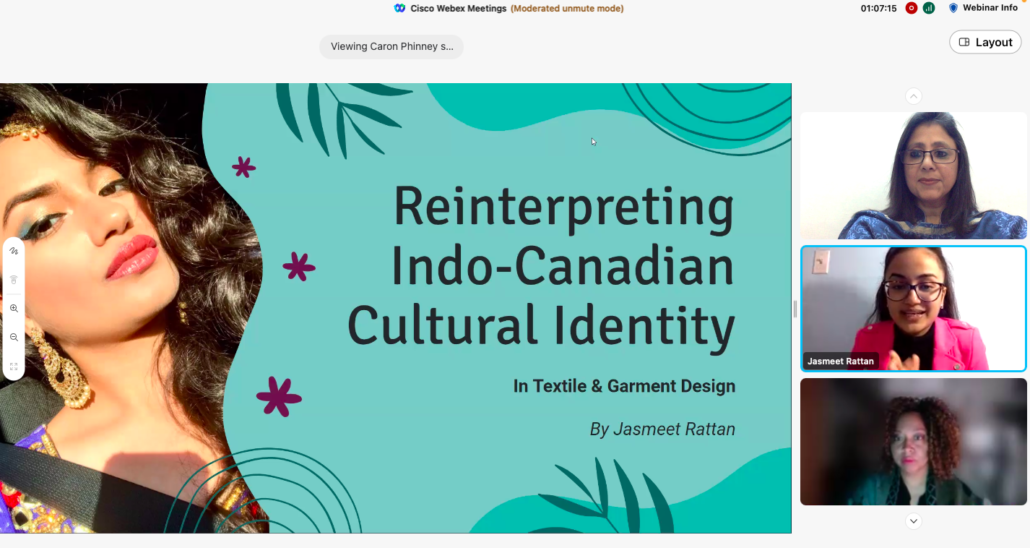Chandigarh March 25, 2022
Shastri Indo- Canadian Lecture Series at UIFT, Panjab University
UIFT hosted the THIRD online lecture of Shastri Indo Canadian Lecture Series “Taking traditions forward: Preserving and conserving culture and heritage in the South Asian Canadian Diaspora” .
Dr. Anu H. Gupta, Director of the Shastri, Indo Canadian Lecture Series, and Chairperson of UIFT & VD, revealed that the lecture series is focusing on global interactions beyond borders and exploring the exchange and impact of tradition, heritage, and culture of India and Canada through material culture.
As the guest of honour at this series, Professor Deepti Gupta, Dean International Students, Panjab University praised UIFT on connecting and exchanging knowledge with the global community. She stated that learning is now taking place outside of the classroom, and digital exchanges are another type of collaboration that has gained attention in recent years and are undoubtedly a good experience at both ends. Ms Sadia Karman, Manager, International Learning and Engagement at Ryerson University’s Creative School, also graced the occasion as a special guest.

As the day’s speaker, Professor Caron Phinney from Ryerson University’s School of Fashion in Canada gave her thoughts on the topic Re-interpreting Indo-Canadian cultural identity via Textile and Garment Design. The lecture covered many aspects of how various immigrants living in Canada’s multicultural society are attempting to rediscover their ethnic and traditional roots through an incorporated modern style in bridal attire. The difficulties of belonging to a foreign ethnicity raise difficult considerations for immigrants who face discrimination because of their skin colour or facial traits. As a result, the session discussed through case studies how women try to bridge the gap between two identities, where cultural identity is mostly influenced by the type of social connections one has.
She went on to discuss about one of her projects on Bridal dresses and Rituals which highlighted how the rituals and traditions are being performed by the people who do not to completely divorce from their roots. Since fashion relates to behavioural codes, thus the dresses emerge as an amalgamation of pre-existing values, ideas, perceptions and contemporary influences. To exhibit how clothing is a complex object that carries significant messages she shared another case study of Mani Jassal, an Indo-Canadian designer who has come up with her brand of creative costumes emphasizing her South Asian routes, where she foregrounds in her work a progressive approach to design.
Another impactful portion of the discussion was Jasmeet Rattan’s journaling of her own challenges, and Caron Phinney considered sharing the platform with her student so that ground realities might be heard openly. Jasmeet shared her path of being in denial of her cultural identity due to discrimination on multiple levels, but her true victory came when she accepted who she was and took forward her identity as a Sikh woman through her collection dubbed F2022 Women’s Sikh Formal Wear. The third lecture drew approximately 105 attendees. Dr. Rita Kant, UIFT & VD faculty, initially greeted the event’s attendees, guests, and resource person. The presentation of the speaker supported by Jasmeet’s presentation made the session interactive and an eye opener for the attendees, who were surprised to see how clothing can shape one’s identity of being a strong individual in a multi-cultural society. This elicited numerous questions from the audience, which were thoroughly discussed and debated by the speakers. Dr. Prabhdip Brar, UIFT & VD faculty, thanked everyone who participated and contributed to the success of the third lecture in series.




